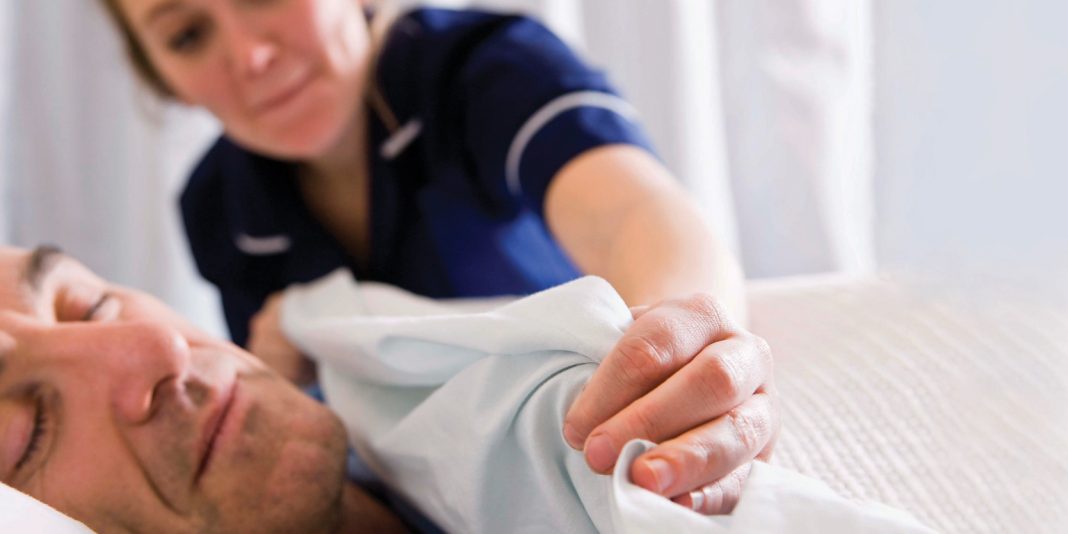DHBs have been asked by the nurses’ union NZNO for more money for more nursing staff to safely staff public hospitals for 14 years.
And each year the DHBs have failed to provide money for enough nursing staff to make their workplaces safe for the patients and the nursing staff.
When DHB workplaces are unsafely staffed the patients do not receive the care that they require. Essential monitoring of a deteriorating patient gets missed by nurses because they have too many patients to safely care for, pain medication gets missed, nurses become exhausted and fail to take their meal breaks, which compounds an already unsafe situation, and sentinel events (near misses, and serious injury and death to patients due to unsafe staffing) start to occur.
However, the DHBs haven’t committed to putting the Care Capacity Demand Management (CCDM) systems – advocated for by NZNO – into place so the instances of unsafe staffing in DHB workplaces are neither recorded nor audited. (The CCDM tools were developed by the joint NZNO DHB Safe Staffing Healthy Workplace Unit to use acuity data to calculate how many staff a ward or unit needs to safely meet patient needs).
So the NZNO, NZNO nurses, DHBs, or the Safe Staffing Healthy Workplaces (SSHW) Unit have no idea how many instances of care rationing have led to sentinel events for patients being cared for in DHB workplaces.
DHBs during their pay negotiations with NZNO argue that there is not enough money for both a substantial pay rise and a commitment to safe staffing.
The result is that DHBs end up pitting one essential requirement – nurses demanding a pay rise – against nurses’ other essential requirement; that is, for more staffing to safely care for our patients.
I believe the DHBs honour neither requirement, because it is in the DHBs’ interest to save money. This is a conflict of interest and it makes a mockery of the DHBs acting as a ‘good faith’ bargaining partner.
We ask that the Ministry of Health, Ministry of Business Innovation and Employment (MBIE) and the New Zealand Nurses Organisation divest all DHBs from responsibility for NZNO’s ‘safe staffing’ agreement, and instead make the ‘safe staffing’ agreement between NZNO and the Ministry of Health and MBIE.
The DHBs need to bargain in good faith on the wages and pay increases for its employees. DHBs could then be held accountable by MBIE for honouring the government mandate of providing a safe workplace for staff and patients.
It could also ensure that care capacity demand management (CCDM) safe staffing requirements are calculated and achieved in DHB workplaces, with the support of NZNO to advise and ensure safe staffing was enforced.
I believe funding for DHB safe staffing should be the responsibility of the Ministry of Health, to avoid future conflicts of interest; that safe staffing implementation should be regulated by the MBIE; and should be audited, administered, enforced and staffed by NZNO every shift.
It is important that an effective government department such as the Ministry of Business Innovation and Employment, which is bound by the Health and Safety at Work Act 2015, is made responsible for regulating, administering and enforcing laws that protect the staff who work in DHB workplaces and the patients they care for.
Nursing and allied health staff work in and provide care for patients, in the workplaces that the DHBs provide. Each DHB is obliged under the Health and Safety at Work Act 2015 to protect the safety of workers and other people in their workplaces and to meet health and safety standards; which includes safe staffing, that is specific nurse-to-patient ratios depending on acuity/comorbidity.
NZNO could advise, regulate, enforce, administer and monitor DHB workplaces and their compliance with MBIE’s safe staffing requirements. There could always be a NZNO staff member available within DHB workplaces 24/7 to monitor compliance of the DHB workplace’s nurse-to-patient ratios; and to report, record, and direct extra nursing staff to a ward or unit should that be required.
Having a stronger and more responsive government Ministry in charge would meaner greater accountability for safer staffing, minimise care rationing by nurses to patients, decrease length of hospital stay for patients, provide better and more effective nursing care to patients, and diminish the incidence of serious sentinel events (serious and fatal harm caused to patients due to unsafely staffed DHB workplaces).
It would also allow the DHBs to act as a bargaining employer of good faith, and restore some transparency, integrity and accountability to the DHBs’ reputation to negotiate and deliver pay rises for nursing staff.
You can view Anna Dobson’s petition here.
Author: Anna Dobson is an NZNO member who has been a nurse for a district health board for 10 years and strongly believes that responsibility for funding and monitoring safe staffing should be removed from the 20 district health boards.





















